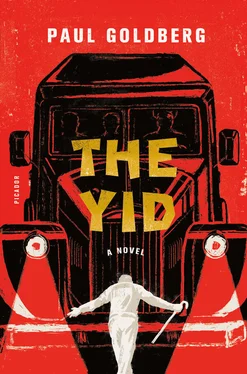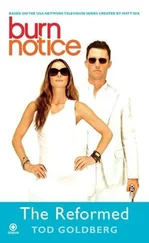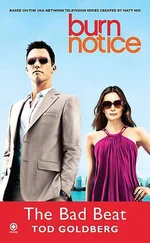“From a locomotive?” asks Levinson, contemplating the graph paper in front of him.
Lewis nods, looking over Levinson’s shoulder. It appears that the train has come from Omsk, and its crew has orders to arrive at the Kazan station. Imagine that: a freight train arriving at a passenger station. Whatever for?
LEWIS: This tells us when …
LEVINSON: That it does.
LEWIS: When it begins …
LEVINSON: Looks like it’s March fifth for the pogrom. March sixth for deportations.
KOGAN: Alas, this rules out a fluke.
MOISEY SEMYONOVICH: We have exactly seven days.
* * *
Levinson cooks porridge and scribbles frantically in his notebook.
The porridge is generously lubricated with shkvarkes , melted fat with browned onions. Shkvarkes can be made with an animal fat of one’s choice, and — as one would surely guess — Levinson likes lard, both for its strong taste and its symbolic value. Pork has been his meat of choice for quite some time.
Next to the bowl lies an extraordinarily large salted pickle, the kind you pull out of a barrel at a market and eat on the way home. The aroma of garlic and dill overpowers the smell of wood burning in the stove, and pickle juice is bleeding godlessly onto the table. A greenish puddle encircles Levinson’s inkwell.
“Lewis, what do you think of blood rituals?” asks Levinson without looking up. He is back to his absurdist games.
“They are pleasant,” says Lewis. An idiotic question warrants an idiotic answer.
“Vos!” Levinson slams his hand on the table. “Blood rituals are pleasant. Drey nit ba mir di beytsim!” Don’t twist my balls. There is no better way to tell your interlocutor to be forthright and brief.
“You keep your beytsim, many thanks,” says Lewis.
“How deep a cut?”
“A cut in what? Your beytsim, komandir ?”
“No, the throat!”
“Whose throat?”
“The victim’s, idiot!”
“Of what?”
“The ritual sacrifice!”
“You Jews have those after all? I thought you didn’t.”
“No! We do not! That’s why it’s so difficult. How deep a cut?”
“About halfway.”
Too late, Lewis realizes, he is drawn in, if only for a moment.
“I see … You hold them by the hair,” says Levinson, pulling back his own head. “And … slash! Halfway … azoy … Like this … and then you let it drain.”
“If you wish. I’m going to bed.”
“This is not useful.” Levinson returns to the table, muttering, “ Shlof zhe, shlof … I ask an engineer … That’s what I get … Halfway … Pleasant … A sheinem dank … A kluger … Why couldn’t she find an actor? Paul Robeson, for one…”
“A gute nakht, mayn tayerer komandir,” says Lewis in Yiddish. Good night, my dear komandir .
It makes no sense, perhaps, but just before he drifts off to slumber, he sees Levinson dance slowly, alone, singing something about blood, a bucket, and a sword, then continues to dance as his words dissolve into a nign .
Lewis could swear that Kogan, returning to the hut, sets down the firewood and sings and dances, too. Their nign is quiet. Their dance consists of slow, exaggerated, sweeping moves.
It is conceivable that this is a dream, but if it is indeed, what can it signify? And how does it differ from the other dreams Lewis has that night, dreams of flashing swords and half-severed heads and blood that gushes into a dirty bucket?
Throughout that night, Lewis hears a nign.
A deep, fresh coat of snow falls during the night and, on the morning of February 27, Kogan walks out into the yard to shovel out a path.
He stabs the snow with his old, well-worn shovel. The birch wood of the handle is oiled with sweat and worn to make grooves for his strong hands. This is his sweat, his little mark upon this planet.
Aleksandr Sergeyevich Kogan loves to shovel snow. The songs that people sing as they shovel are telling of what they hold sacred and, by inference, who they are.
Kogan sings Red Army songs. These are not the authentic songs of the Russian Civil War. Levinson’s partisan detachment was decidedly nonartistic. No one sang. In Kogan’s view, Civil War songs were written for agitation and propaganda purposes years after the battles ended. He knows the “Internationale” in French, Russian, German, and Yiddish, and he knows every piece of music ever performed by GOSET. Yet these songs do not stir his soul.
His soul is touched by a song from a propaganda musical called “Traktoristy,” in which tractor drivers attest to their readiness to switch to another piece of heavy machinery — a tank:
Gremya ognyom, sverkaya bleskom stali,
Poydut mashiny v yarostnyy pokhod
Kogda nas v boy poshlyot Tovarishch Stalin
I Pervyy Marshal v boy nas povedyot.
The translation that follows sacrifices the song’s minimal poetic value in favor of optimizing the accuracy of the text:
(Thundering with fire, shining with the glimmer of steel,
The machines will advance into a ferocious campaign
When we are sent to war by Comrade Stalin
And the First Marshal leads us into battle.)
As a Red Army veteran and a thinking man, Kogan surely knows that the First Marshal, Kliment Voroshilov, is a particularly thick-skulled cretin, who — had he been left to his own devices — would have lost many a war.
Why is this musical idiocy on Kogan’s lips shortly after dawn on February 27? Out of respect for Kogan’s profession and his historical significance, a reader may be tempted to regard him as a Western-style, leftward-leaning small-d democrat.
In reality, Kogan is very much a product of his time and place, and the sense of belonging to something greater than himself gives him comfort.
* * *
Even when the snowfall is light, it takes Kogan an hour to make a narrow path from the porch steps to the gate. He starts shoveling at seven. A little after eight, he reaches the wooden bridge over the drainage ditch that runs alongside the road.
He looks up to mumble a greeting to two young men who are sliding along the gouge a passing truck made in the middle of the lightly traveled road.
“Tarzanchik, smotri, vot zhid nash,” says one young man to the other. Tarzan, look, here’s our Yid.
“Da, i vparavdu nash,” says Tarzan. Our Yid, indeed.
“Tovarishchi, ne zhid a yevrey,” says Kogan with pride. Comrades, I am Jewish, not a Yid.
As a physician, Kogan believes that projecting a sense of dignity and inner strength has the capacity to thwart would-be assailants. In reality, of course, dignity and inner strength, no matter how powerfully projected, are not protective in the least.
Consider Solomon Mikhoels. Could his world-renowned projection of dignity and strength hold back a truck?
“Khorosho govorish, zhidishka,” says Tarzan. You speak well, little Yid.
“Kent, are you afraid of him?” he asks his comrade.
“I’m shaking.”
“Me, too.”
Before Kent grabs him from behind, and prior to Tarzan placing brass knuckles on his hand and taking a wide swing, Kogan raises his hand to loosen his precious dentures.
At the moment Tarzan’s fist makes contact with the right side of Kogan’s face, his dentures — both lower and upper — shift to the safety of his stretched-out left cheek.
Not only does this maneuver preserve the dentures, but the young men feel great satisfaction when Kogan spits out a stream of blood and artificial teeth into the snow-filled ditch.
“Where are your dollars?” asks Kent. “V filine?”
Читать дальше












